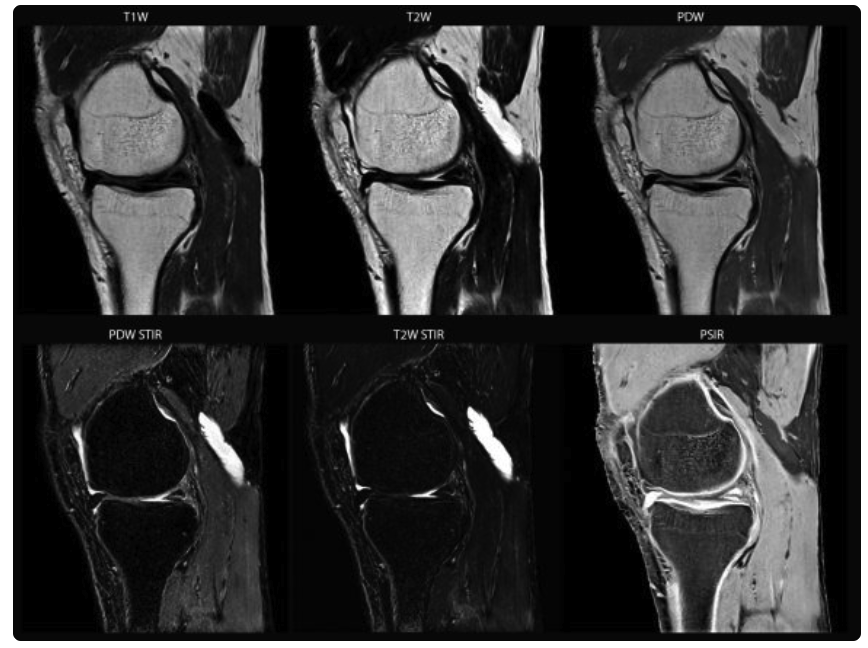MRI Sub-Study in Phase 2 Trial Reports Safety, Efficacy of Osteoarthritis Knee Treatment
Images

Eupraxia Pharmaceuticals Inc. announced positive MRI data from the Company's ongoing SPRINGBOARD Study, a Phase 2 randomized, double-blind, vehicle-controlled, parallel-group trial evaluating the safety and efficacy of EP-104IAR for the treatment of osteoarthritis (OA) of the knee.
"The positive results from the MRI sub-study of the SPRINGBOARD trial provide supportive clinical evidence that treatment with EP-104IAR does not appear to negatively impact cartilage health or exacerbate inflammatory conditions in the surrounding area, which is important information that supports continued clinical development of EP-104IAR," said Dr James Helliwell, CEO of Eupraxia.
The clinical data are based on the 12-month results from an MRI sub-study where subjects from the SPRINGBOARD study were invited to participate in an optional imaging analysis that was performed in parallel to data collection for the main study. MRI, including Dynamic Contrast Enhanced scans of the index knee and T2 Scans, were obtained as part of this sub-study. These MRI analyses included assessments of synovial inflammation (synovial thickness, synovial blood flow) and articular cartilage health (cartilage quality and morphology) for EP-104IAR versus placebo. Cartilage health, quality and morphology, were assessed by T2 relaxation times, which can indicate deterioration of the collagen network and increased water content. Changes in T2 values may show subtle changes in cartilage composition even before structural changes appear. Due to the planned small subject numbers per treatment arm, these images were not expected to provide statistically significant data.
In the SPRINGBOARD study, 318 subjects with knee OA pain were randomized 1:1 to receive a single intra-articular dose of EP-104IAR 25mg (n=163), or vehicle (n=155) in one index knee and were followed for 24 weeks. The study enrolled male and females, ≥40 years, diagnosed with primary knee OA with a Kellgren-Lawrence Grade 2 or 3, OA symptoms for ≥6 months and weekly WOMAC® Pain scores ≥4.0 to ≤9.0 (out of 10), which did not vary by >3 points. WOMAC Pain, Stiffness and Function (0-10 scales) were collected for the index knee weekly (pain) and monthly (stiffness/function) via e-diary. Baseline was the average of three pain scores during the two-week baseline period or a single pre-dose score for stiffness and function.
In parallel to the main study, MRI (with macrocyclic gadolinium-based contrast agent) of the index knee was obtained from participating patients who received EP-104IAR (n=6) or placebo (n=6). Scans were performed at baseline and weeks 12, 24 and 52 (or on early exit). Following completion of assessments for the main study at week 24, patients were treated as necessary, using the standard of care, by their physician. All MRI central readers were blinded to treatment allocation and study visit.
The data obtained in the MRI sub-study demonstrated the following results:
- Treatment with EP-104IAR resulted in a decrease in inflammation at weeks 12 and 24 when compared to placebo. The two groups were similar at one year as the clinical effect of the single EP-104IAR injection had waned by one year.
- A correlation between reduction in inflammation and a reduction in WOMAC Pain scores was observed.
- A trend of equivalent or improved T2 relaxation times was observed in the EP-104IAR treated group compared to the placebo group at 12 weeks and that trend held steady, or improved, at 24 weeks and 52 weeks. This data suggests a trend of potential improvement in cartilage quality and morphology in the treated group.
These exploratory data will provide guidance on the value of including further MRI assessments as part of the Company's EP-104IAR clinical program. Eupraxia has previously published data demonstrating preservation of cartilage quality and morphology to 10 months with EP-104IAR in GLP toxicology studies in dogs; the data discussed today is the first human data to support potential reduction of inflammation and preservation of cartilage quality in humans with EP-104IAR.